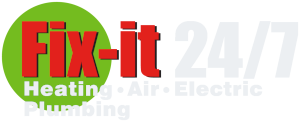Maintaining a well-functioning heating system is essential for keeping your home comfortable and energy-efficient. Regular heating maintenance prevents unexpected breakdowns, ensures reliable performance, and contributes significantly to the longevity of your system. By staying proactive, you can effectively manage energy costs while safeguarding your family’s comfort.
Importance of Regular Heating Maintenance
Regular heating maintenance is crucial for prolonging the lifespan of your heating systems. Maintenance helps to identify potential issues before they become major problems, thereby reducing the need for costly repairs. Consistent attention to maintenance tasks allows heating systems to function at optimal performance, ensuring reliability when temperatures drop.
Maintenance enhances not only the longevity but also the energy efficiency of heating systems. Well-maintained systems consume less energy, which results in lower utility bills. Clean filters and operational components contribute to a smoother airflow, minimizing energy wastage and promoting a sustainable household environment.
Safety is another significant benefit of regular maintenance. Heating systems, especially ones fueled by gas, can pose safety risks if neglected. Regular checks can prevent dangerous situations like gas leaks or carbon monoxide emissions. This proactive approach ensures a secure environment for you and your family.
Overall, consistent maintenance is key to avoiding interruptions and maintaining a consistent home climate. By investing time in basic upkeep, homeowners can enjoy peace of mind, knowing their systems are ready to perform efficiently and safely throughout the heating season.
Essential Heating Maintenance Practices
To keep heating systems running smoothly, several key maintenance tasks should be performed regularly. These tasks are straightforward but crucial for system efficiency and longevity. Here is a list of essential maintenance practices:
1. Filter Replacement: Replace or clean filters every few months to ensure unrestricted airflow and prevent dust buildup. A clean filter improves air quality and efficiency.
2. Thermostat Checks: Regularly check your thermostat settings to confirm accuracy. An incorrectly calibrated thermostat can lead to uneven temperatures and increased energy use.
3. Duct Cleaning: Clear ducts of dust and debris at least once a year. Clean ducts promote better airflow and reduce the strain on your heating system.
4. Checking Vents and Registers: Keep vents and registers unobstructed by furniture or curtains to allow proper air distribution and system balance.
Performing these tasks according to their recommended frequency can prevent many common heating issues. Regular attention to maintenance ensures the system remains in top condition, minimizes breakdowns, and extends the heating system’s service life. By incorporating these practices, homeowners can maintain an effective and efficient heating system throughout the season.
Common Heating Issues and Prevention Tips
Heating systems can sometimes encounter problems that hinder performance and comfort. Common issues include uneven heating throughout the home, strange noises like clanking or whistling, and fluctuating temperatures that make it difficult to maintain a consistent environment. These issues can stem from various sources, including clogged filters, air leaks, or malfunctioning components.
To prevent these problems and ensure your system operates efficiently, consider these proactive measures:
1. Consistently replace or clean air filters to maintain optimal airflow and prevent dust accumulation.
2. Seal any air leaks around doors, windows, or ductwork to prevent heat loss and energy inefficiency.
3. Schedule periodic checks of your thermostat for proper calibration, which ensures accurate temperature control.
4. Keep vents and registers clear of obstructions for balanced air distribution and effective heating.
By addressing these common concerns and integrating preventive measures, you can enhance your heating system’s reliability and efficiency. These practices help extend the system’s service life while maintaining consistent comfort in your home.
When to Seek Professional Heating Services
Though regular maintenance can prevent many issues, there are scenarios where professional intervention is essential. Our technicians are equipped with the expertise to handle complex problems that require specialized knowledge and tools. If you notice persistent issues such as unusual odors, frequent cycling on and off, or a sudden spike in energy bills, it is advisable to contact a professional for a thorough assessment.
Regular professional maintenance offers several advantages for complex systems. Technicians have the skills to identify underlying issues that might go unnoticed by homeowners. They can also perform detailed cleaning, adjust components, and ensure your system operates at peak performance. Scheduling a professional check-up before the heating season can prevent unexpected breakdowns and enhance system efficiency.
Professional services ensure safety and compliance with regulatory standards, particularly for gas-operated systems. By enlisting professional help, you can be confident that your heating system is well-maintained, reliable, and safe for your household.
Conclusion
Heating maintenance is a pivotal part of home maintenance that significantly impacts comfort and costs. Implementing regular maintenance routines aids in preventing common heating issues, promoting safety and efficiency. By remaining proactive with basic upkeep and recognizing when professional intervention is necessary, you can preserve the functionality and longevity of your heating system.
At Fix It 24/7, we understand the intricacies involved in maintaining heating systems and are dedicated to providing top-notch service. Our experienced technicians are ready to assist with any needs regarding heating maintenance in Denver, as well as repair and installation. Contact us today to ensure your heating system is prepared to keep your home comfortable throughout the seasons.


